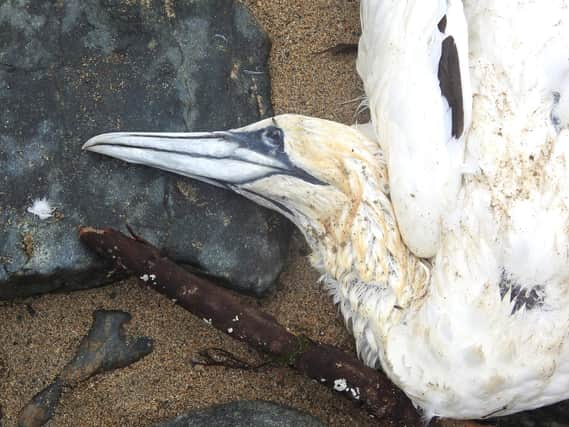Wildlife: We must hope that the bird flu disease wanes naturally


In part these are natural processes, but significantly affected by what humanity has done to the planetary ecosystems. There have been catastrophic disruptions due to globalisation, urbanisation, human population growth, land degradation, and of course, climate change. This is all pretty miserable stuff, especially when you come across the stark evidence as I did recently down in Cornwall. On the beach at Marazion near Penzance, I came across a number of dead gannets. This magnificent colonial-breeding seabird has been a significant casualty of the bird flu epidemic and with umbers plummeting.
Bird flu is a viral infection that spreads among birds, and rarely affects humans. The symptoms presented are similar to ‘normal’ flu with a runny nose, sore throat, and fever. Birds infected with the most serious strain of bird flu, called Highly Pathogenic Avian Influenza (HPAI), usually show some (or all) of the following signs - sudden death, swollen head, closed and runny eyes, lethargy, and depression, lying down and unresponsiveness, and much more. The severity of infection varies with birds infected with the less serious strain called Low Pathogenic Avian Influenza (LPAI) may not show clear signs of infection. They may have mild breathing problems and these signs can indicate bird flu. However, avian influenza virus can only be confirmed through rigorous laboratory testing. Some bird species for instance ducks, geese, and swans can carry the avian influenza virus and spread it without showing any signs of illness. The UK Health Security Agency (UKHSA) has said that avian influenza is primarily a disease of birds, and the risk to the general public’s health is very low. The regional UKHSA Health Protection Teams are working closely with Defra to monitor the occurrence of outbreaks. Guidance on the disease and how to respond are given online: https://www.gov.uk/guidance/avian-influenza-bird-flu.
Advertisement
Hide AdAdvertisement
Hide AdIn the meantime, we must hope that the disease wanes naturally, and that impacts on birds, wild and domesticated, can be contained.
Professor Ian D. Rotherham, researcher, writer & broadcaster on wildlife & environmental issues, is contactable on [email protected] ; follow Ian’s blog (https://ianswalkonthewildside.wordpress.com/ ) and Twitter @IanThewildside